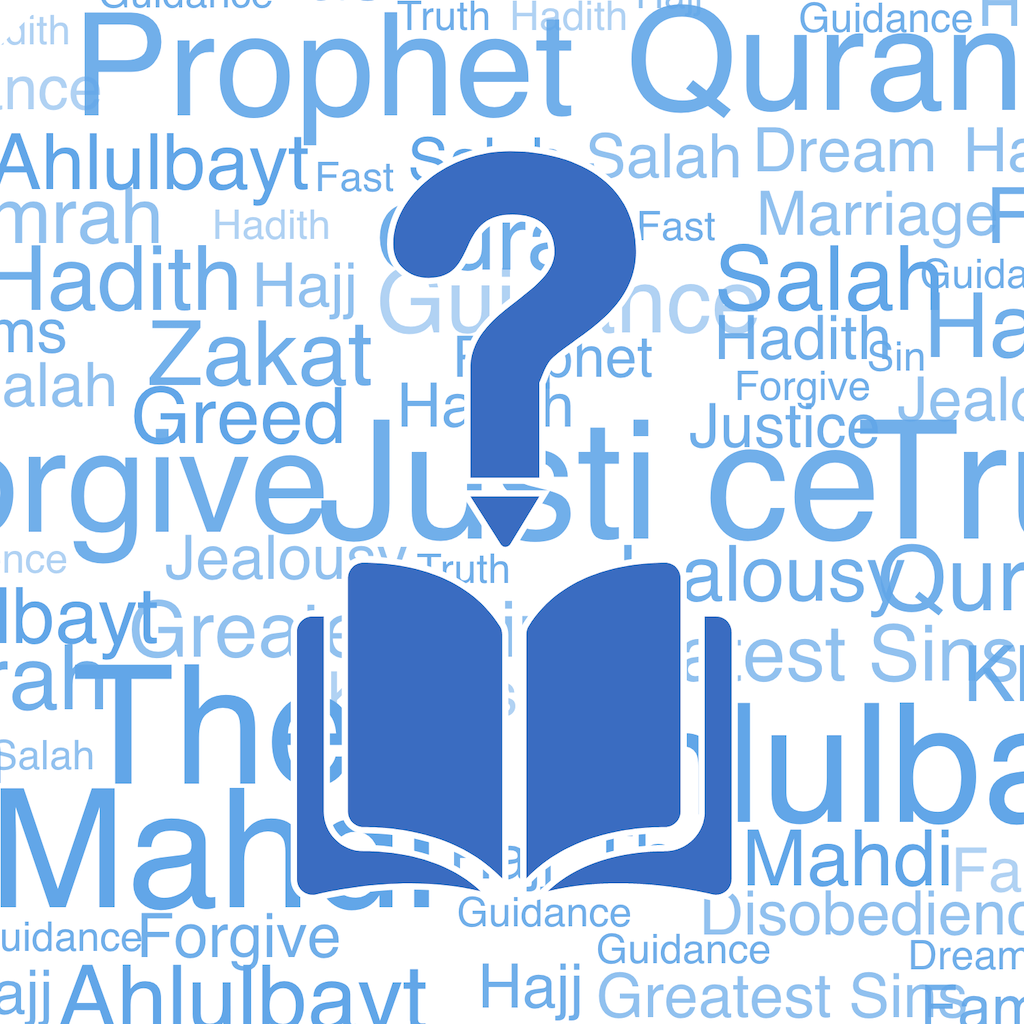My son asked me a question that accept prophet Muhhamed (s.a) is Allah was sending farista to other prophets and imams as well? as we knows about Allah has reveled Quran through jannabe Jibriel. I gave him example of prophet Yusuf that he was also getting help from Allah through farista as he had seen that movie. Is there anything else I can explain him to give satisfactory answer, please.
Definition of wahy
To be more precise in understanding the Islamic perspective on divine revelation or word of God, it is necessary to become acquainted with the term “wahy”. In Arabic, the term “wahy” literally means giving a message quickly and secretly, whether by gesture, in a written form, or by inspiration.
In the Qur’an, the term “wahy” or one of its cognates occurs seventy-eight times and is used in a broad sense. Except for five, all of these cases pertain to God as giver of the message.
Therefore, the first thing that comes to mind is that the concept is used primarily for divine revelation in the Qur’an, though there is also a more general sense of conveying any message. Reflecting on the verses in which the term or one of its cognates is used to refer to the divine act of giving messages, we can classify them according to who the recipients are into the following categories:
a. The Prophet Muhammad: He is the paradigmatic recipient of wahy as mentioned in the Qur’an and nearly half of the cases in which the term wahy or its cognates are used in the Qur’an relate to him.
b. The Prophets, of whom Moses is more frequently mentioned.
c. The disciples of Jesus or mother of Moses
d. Angels
e. The bee
f. The heavens.
As we see, wahy is not restricted to the Prophets. Rather it is used in a more general sense to refer to different sorts of guidance given by God to His creatures, and since divine guidance is all- inclusive, His wahy reaches out to all forms of creation. The Qur’an teaches that God, the Wise, has provided His creation with guidance so that they may achieve their proportionate perfection.
The first form of Divine guidance is an inner and instinctive instruction, which is innate in all beings. It is from Him that each created thing derived its form and nature, including such free will and power as that of man. God has granted everything all the means and opportunities of development. The Qur’an says:
‘(Pharaoh) said: "Who then, O Moses, is the Lord of you two?" He said: "Our Lord is He Who gave to each (created) thing its form and nature and further gave (it) guidance.’ (20:49 & 50)
‘Glorify the name of thy Guardian-Lord Most High Who hath created and further given order and proportion; Who hath ordained laws. And granted guidance.’ (87:1-3)
The second form of Divine guidance is where God sends the Prophets and divine books for man to learn the purpose of his creation and how he can realise his true potentials. The Prophets inform man of what is outside the realms of his knowledge and experience, explain the consequences of his actions to him, confirm and support what man can understand by his reason and serve as a role model for him to follow.
Thus, human beings enjoy two sorts of guidance: the general guidance (al-hidāyat al- ‘āmmah), which is shared by all creatures and the special guidance (al-hidāyat al-khāssah), which is exclusive to those beings that have reason and free will. This is where God communicates to human beings through the Prophets and is called “wahy” by Muslim theologians.
Having understood this, the occurrences of divine wahy in the Qur’an can now be classified according to the nature of the messages, into the following categories:
Natural Instinct: We always admire the wonderful achievements of small insects, such as the bees, the ants, the spiders and so forth.The same is true about the laws of nature, such as gravity, the movement of atoms, planets, etc. This is all due to a general guidance, provided by God.
Inspiration: Sometimes God suggests certain ideas or courses of action to some people who are not necessarily prophets.For example, we read in the Qur’an that in order to protect Moses God inspired (awhaynā) his mother to put the baby in the river. This inspiration was not convened through an angel and the mother of Moses was not a prophet. Therefore, there is also a kind of general inspiration for all people. For example, the Qur'an tells us that God has inspired mankind with discernment between virtues and vices.
Prophetic revelation: This is exclusive to the Prophets and this has been referred to in the Qur’an more than seventy times. For example:
‘Thus We have revealed to you an Arabic Qur'an so that you may warn the Mother of Cities (Mecca) and all around her and warn (them) of the Day of Assembly of which there is no doubt: (when) some will be in the Paradise and some in the Blazing Fire.’ (42:7)
‘We relate unto you, the most beautiful stories, in that We revealed to you this Qur'an: before this you too were among those who knew it not.’ (12:3)
This is the highest and the most sophisticated form of divine communication. Since the advent of Islam, the Qur’an introduced itself, and Muslims have considered the Qur’an, as an instance of this phenomenon.

